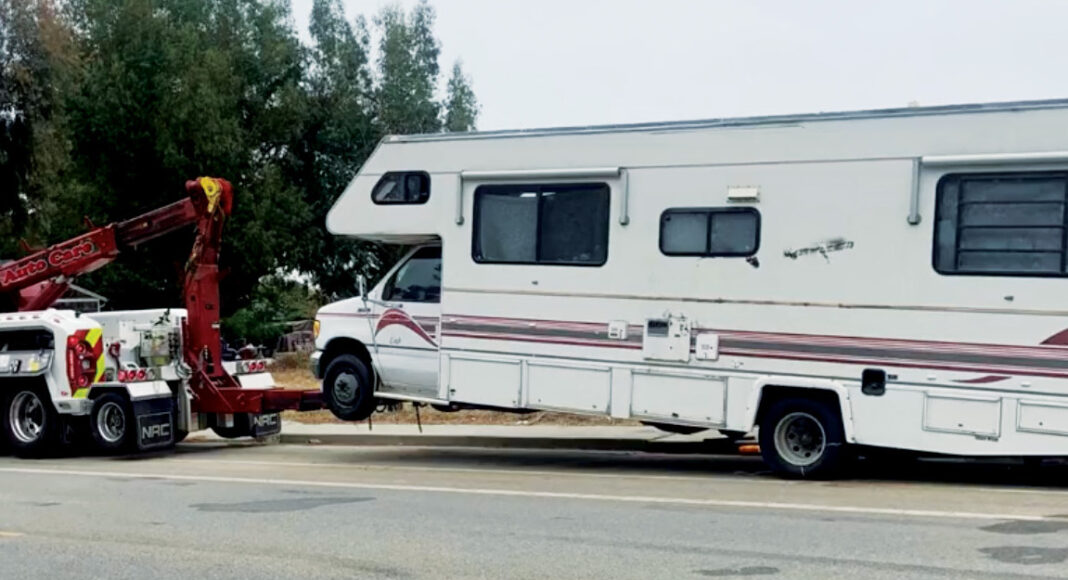Serg Kagno, executive director of Stepping Up Santa Cruz, which provides services for people experiencing homelessness, has been living in Santa Cruz since the 1990s. He loves Santa Cruz, and makes an effort to be a positive member of the community through his volunteer work.
He also lives in his van.
“I use my van to live in, and as a mobile office,” Kagno said at Tuesday’s Santa Cruz City Council meeting. “I pay taxes. I volunteer for county boards and neighborhood courts, and I worked as a consultant last year helping set up the Covid shelters and motels.”
Kagno was calling in to comment on the city’s proposal that limits overnight parking for recreation vehicles (RV). The proposal, which passed during the meeting in a 5-2 vote, was created in response to hundreds of complaints from residents. They cited concerns over RV owners dumping trash and waste onto streets, being unruly and creating an unsafe environment for their neighborhood.
But opponents of the ordinance say there are alternative ways to address these issues, such as providing free sewage dumping sites or more dumpsters where RV’s park. Not all RV owners are problematic, said City Councilman Justin Cummings, who voted against the ordinance. This new ordinance doesn’t distinguish between those who contribute to the community, and those who are disorderly, he said.
“Some of us are productive members of the community,” Kagno said. “You’re clearly making it illegal and unwelcome for those living in their RVs to live in the city and work in the city.”
The ordinance was proposed by Vice Mayor Sonja Brunner and council members Shebreh Kalantari-Johnson and Renee Golder, and will go into effect Dec. 9.
The ordinance will prohibit overnight parking for oversized vehicles on city streets unless the vehicle has a permit to be there. Residents can apply for a permit to have an oversized vehicle parked in front of their house for a few days a month. Unpermitted vehicles will be subject to fines and potentially towing. However, if RV owners attempt to participate in a safe parking program but were turned away, the fine will be waived.
Council members also upped the safe parking spaces included in the ordinance. There will be three overnight parking spaces for people to use by Dec. 9, and at least 30 additional overnight parking spaces by March, 2022.
How much will this cost the city? Similar programs that include an operator to monitor the lots and waste management for the RVs require close to $500,000 in start-up costs, and around $4 million annually.
City Councilwoman Sandy Brown joined Cummings in opposing the measure, saying that this will penalize the people experiencing homelessness.













